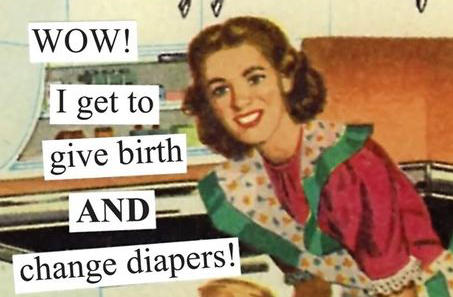Recently, I received an email from a literary publication asking me to comment on why ‘women are underrepresented in major publications’. Since I’m a single mother, working six days a week, and I wasn’t going to be paid, I didn’t respond. But I thought I’d reply here, so Overland will give me cash.
It’s simple, really. Men are published more than women because men are better writers than women.
Do I need to say that there are great female writers? Maybe I do, because you don’t know me, and I might just be a misogynist arsehole. And do I need to say that there are boatloads of very bad male writers? No, you can just go to your local bookshop and peruse the new releases to prove that to yourself.
‘Good writing’ does not emanate from the penis but it does emanate from material conditions. Writing takes time – great swathes of clean, empty time, unsullied by children or housework or deep worry about money or skincare routines. To be a writer is to be selfish enough to grab time and spend it churning words around, even though you are not getting paid very much, hardly anybody cares about what you’re doing, and even fewer people think that it’s any good.
Men are better at being selfish than women. They are better at it before the having of children, but they really come into their own after the having of children. While women generally see the immediate needs of the shorties as taking first priority, men are able to keep themselves as the focus and so spend less time and energy bringing up children.
Generally. Do I need to keep on saying generally?
Do most women with creative dreams think that there will be such an unequal distribution of the labour of childrearing before they have children? I doubt it. They are just in love: that state of deranged optimism that makes one think that the will of the romantic couple is stronger than the dominant ideology and market conditions. But once the shorties begin to arrive, it becomes clear that both parents can’t simultaneously get away from the children in order to earn money or write great art or get drunk in the pursuit of material to write great art about. So in the end, it’s the more selfish one that gets out the door first.
So if you want to be a female writer, and you don’t have enough money for a full-time nanny, then it’s probably best to not have children. Or, if you do have children, you might want to give them up, like Patti Smith or Joni Mitchell did. Either that, or you could be a terrible mother, like Jean Rhys, and write fragmented narratives about the essential torment of trying to look after another human being when all you want to do is drink and write and have complicated sex in an attic somewhere. That is, unless you can find a partner will actually share or take the burden of childcare while you pursue a ‘career’ that is at worst laughable and at best poorly paid, one that requires most of your emotional attention and the vast majority of your time. Give me their number if you do find someone like this – and I will steal them away in the most unfeminist of ways.
Actually, if you’re heterosexual, it’s probably best to avoid having a partner at all, especially one that you live with, because you know that you’ll just end up using your time washing his underwear or listening to his stories about how people don’t understand him. Having no children and no partner will not put you on par with those male writers who have wives to clean up after them and look after their children, but it least you’ll be in with a fighting chance. But there’s also a fair chance that you will end up being incredibly fucking lonely. Especially if it turns out that you’re not really a very good writer at all, just a selfish person with a little talent. If there’s one thing our culture cannot abide, it’s a selfish woman who isn’t talented and really, really, really ridiculously good looking.
All I can say is, thank god for cats.
Do I need to say that these are not choices that men have to make? That men take the idea that they are the absolute centres of their life and that their talent is the most important thing as facts? And do I need to say that if we all became as selfish as male writers, we’d end up with plagues of rats pouring from our unclean homes and a whole generation of extremely fucked up kids?
I’m not here to badmouth selfishness. It is absolutely necessary … but not available to everyone. The answer to the underrepresentation of women’s stories in the literary world is not to give prizes for women’s writing or to introduce quotas for literary magazines. That’s putting the money in at the wrong end of the process, and will probably just end up rewarding women who have greater amounts of leisure time anyway, while producing writing that is bit shit and/or relentlessly middle class. As a solution, it seems more like giving grants for women so they can have time off their actually-very-important work of looking after children and houses and other people’s egos. Such work shouldn’t and can’t be abandoned: to value the life of the artist over the traditionally feminised work of caring is dumb patriarchal romanticism.
Of course we need more stories about women’s lives, written by the people who actually live them, so that women’s work can be allowed to be a viable site for artistic practice and aesthetic reflection. In other words, we need to make it possible for women to be a little more selfish, just for a while.






